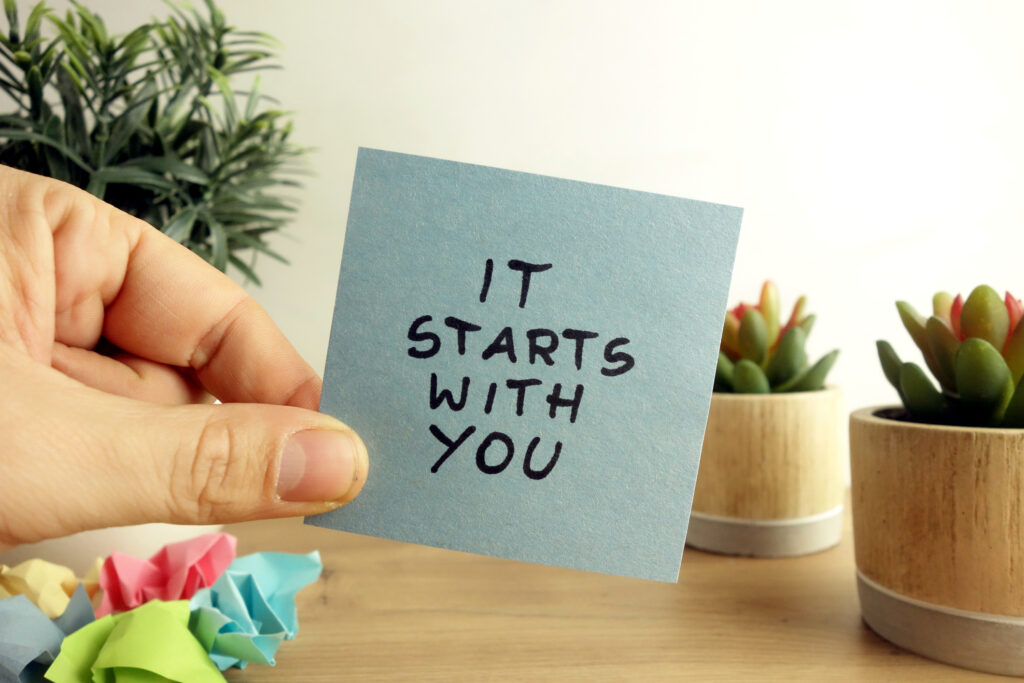By Wesley Gallagher
If you’ve been to treatment for mental health issues or addiction, you’re familiar with the concept of accountability. Accountability to yourself, accountability to others, accountability groups, accountability partners. Anyone in recovery knows that it is not a road to be walked alone.
But what does good accountability look like in recovery? Should you find a group, a friend, someone else in recovery to help keep you accountable? And what makes a good accountability partner?
What Does Accountability Mean in Recovery?
Accountability is foundational to successful recovery. Personal accountability involves taking ownership over your decisions and behaviors, being mindful of how your actions affect others, and accepting the consequences of those actions. This awareness leads to self-reflection, openness to critique from others, personal growth, and healing of broken relationships.
Personal accountability involves taking ownership over your decisions and behaviors, being mindful of how your actions affect others, and accepting the consequences of those actions.
While it’s possible to hold yourself accountable, the best way to practice this is to find someone else to help. In treatment, you have built-in accountability. Once you leave treatment, you’ll still have access to support from your treatment program, but you’ll need to be proactive in finding and maintaining accountability.
How to Find an Accountability Partner
Before you start the search for accountability, it’s important to know what makes a good accountability partner.
A good accountability partner will support and encourage you while also being willing to challenge and motivate you. Trust, honesty, and lack of judgment are key qualities to look for. And above all, you want someone who is fully committed to your recovery journey.
Here are a few options for accountability in recovery:
- Support groups – Probably the most well-known type of accountability is the support group. Whether it’s a 12-Step group or some type of group therapy, these meetings provide an immediate accountability structure. Often, support groups encourage members to find a sponsor, which is basically another name for an accountability partner.
- Another individual in recovery – Whether you find a sponsor in a support group or seek out someone on your own, an accountability partner who has been down the road you are on is a great option. They have the knowledge, experience, and understanding of how difficult recovery is and will have the grace you need when you stumble or fall.
- A trusted friend – If you have a friend who is committed to seeing you stay on track in recovery and who understands the ups and downs it will contain, they could be a great accountability partner. Just be sure being around them doesn’t trigger the desire to slide in recovery, especially if you spent time with them before going to treatment.
- Family – Like friends, family members can be great accountability partners; they often know you better than anyone, love you more than anyone, and care about your recovery just as much as you do. Family relationships can be complicated, however, so be careful when seeking accountability from family members.
The most important part about accountability is to find what works for you and your recovery journey.
The most important part about accountability is to find what works for you and your recovery journey.
Benefits of Accountability in Recovery
A study in the journal Substance Use and Misuse found that support from friends, family, and 12-Step groups was associated with reduced substance abuse, greater willingness to change, and goals of total abstinence for people in recovery. Accountability in recovery is essential to success.
Benefits of having an accountability partner include:
- Ownership – They will help you take ownership of your actions, which is a huge part of a successful recovery. You can be open and honest with them about your struggles, allowing you to come to terms with your addiction and what it takes to get well.
- Self-esteem – They can help you work through feelings of shame and guilt that come from mental health struggles or addiction. As you grow to love yourself more, you will be better at taking care of yourself and staying on track.
- Perspective – Not only can they offer much-needed insight on what you need to stay the course in recovery, but they can also see signs you might not notice if you are headed toward relapse.
- Celebration – You will have wins in recovery too, and it’s important to celebrate them! An accountability partner will help you celebrate your progress.
How to Be a Good Accountability Partner
Once you’ve seen the benefits of accountability, you’ll want to pay it forward to someone else. So what does it look like to be a good accountability partner to someone?
Start with what you appreciate in your accountability partner. Whatever helps you will likely help others on the same journey. Empathy, understanding, and listening can go a long way to support someone in recovery. Consistency is another key element of good accountability; simply being there when they need you is huge.
The Meadows Ranch Cares About Your Long-Term Recovery
Accountability is as important for eating disorder recovery as any other type of recovery. At The Meadows Ranch, we are committed to your long-term recovery, focusing on the education, skills, and support you need to sustain the healing you receive in treatment. While you are here, we will create an aftercare plan that includes a support team to help you continue your journey, and our alumni program Onward offers opportunities to stay connected. With these supports in place, the vast majority of our patients remain committed to a life of health and balance long after leaving treatment. To learn more about how we can help you or your loved one struggling with an eating disorder, reach out today.

